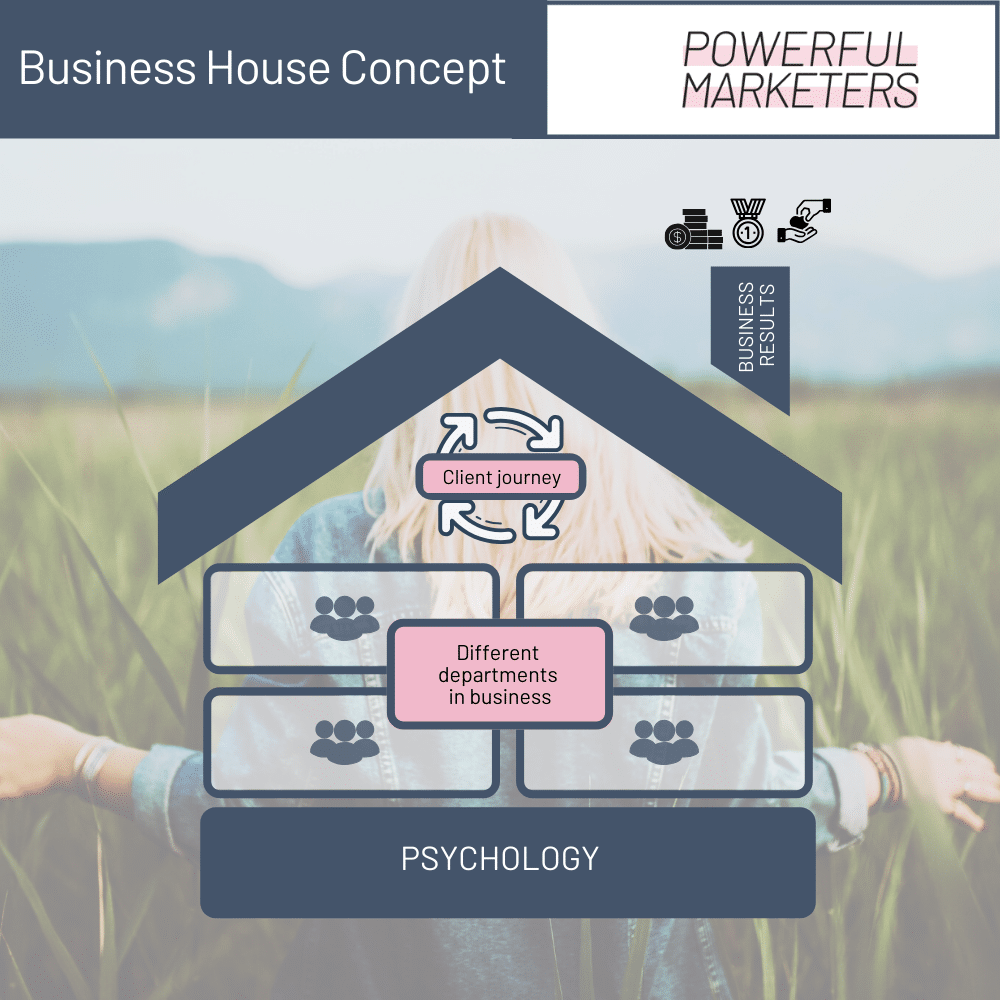Often business owners and managers underestimate their role in marketing. They do not want to get involved, yet are unsatisfied with the results. In this article, we will take a look at how leaders can effectively manage marketers and their work, and what’s even more important, how can they assess the impact of marketing on overall business performance.
Management as a marketing strategy
The majority of leaders don’t consider themselves as marketers. However, the understanding and trust in marketing and marketers is mostly non-existent and most business leaders deliberately distance themselves from the topic. As we mentioned in our previous blog post, according to The Fournaise Group, 80% of the CEOs do not trust marketers and they are dissatisfied with their work:
- the results of the work of marketers and company’s financial situation are too separated from each other;
- to earn trust, marketers have to evolve into ROI marketers: they have to be able to prove how their work impacts the business.
Marketing has lost its credibility, but ironically today the leader is the strongest (or weakest) marketing strategist in the company.

Strategy
The word strategy comes form the Greek word strategos, which means military leader. In todays context, it is translated as a general officer. The main task of strategos was to see the bigger picture and to find solutions to achieve the goals in conditions of uncertainty.
Leaders in every business are responsible for their company’s strategy, whether they are conscious about it or not. However, in order to gain or maintain an advantage over competitors, it is no longer enough to have the best advertising campaign or a good salesman. Especially now, when the global pandemic has brought uncertainty to every business. (See our blog post about marketing in the era of the coronavirus pandemic)
Strategy is a sequence of processes, which in today’s world is intertwined with marketing more than we can imagine.
Mari-Liis Vaher, the creator of the Powerful Marketer Program
Marketing or advertising
In the abundance of information that we live in, it is important to remember that marketing does not equal advertising. It is not an activity that just a few lucky ones can afford to do or something that the costumers will definitely listen to, notice or trust.
Advertising is advertising. In other words, it is one of the specific ways of communication that we can use to reach our target audience.
Marketing is something that helps you in critical strategic areas of your business. Like it or not, every company does marketing even if they don’t spend any money on it.
How you communicate with your team or with your partners; how your colleagues communicate with your customers; how your website or your customer service process looks like; how the customer journey is built, how you provide (or do not provide) information to your customers – all of it is marketing.
All other departments in business are always related to marketing. Advertising is also sometimes necessary but marketing is something that is always crucial. It is about sharing information about a product or a service, starting from the user manual to the way you offer aftersales support; about the way you nurture relationships and communicate throughout the process (incl. feedback and additional purchases). All of which, in a perfect world, will formulate suggestions to the management (how to grow by changing or supplementing activities).
Leadership
Leaders have a lot of questions concerning the global pandemic: Whether to act or to wait? How to keep good relationships with employees and strategic partners? How to maintain company’s reputation? Which activity ensures survival? Nobody has the definite answers, that is why it is important to concentrate on the things that are possible. Leaders should concentrate on economic calculations and decision-making based on that, as well as on the so-called soft values that directly and indirectly guide marketing.
Leaders show direction and attitude throughout and always. Every day their behavior and attitude create a good ground for overall communication and reputation:
- In communication with costumers, partners, suppliers and other parties (external marketing customers): is the communication understandable, professional and in the best interest of all parties? When the parties meet, is your company considered a desired partner or not? As you can see, it is very short-term to think that the market and the situation will remain the same; that you have the power. The situation can change any time and a wise leader knows how to value the importance of good relationships.
- In communication with employees, including future employees (internal marketing customers): it is important that employees feel good in your company, because they are your first and biggest marketers. People have always talked to each other, but nowadays their voice is getting louder and recommendations are shared and asked for. Management practices and company values are also considered important. Again it is very naïve to think that good employees are easy to find. Organizational culture is created through communication that is passed on directly to today’s and future customers. Even without formal rules, customers can be well-kept and informed in the company because your people just want to do it.

Marketing and communication have a special role in the process of customer journey, but we often forget that this journey actually starts with leadership. Especially in today’s world where abundance of information is overwhelming and we don’t know exactly which provider we can really trust in the marketplace.
We don’t even know exactly what tomorrow will bring. But one thing is clear: we know that we have to surround ourselves with people, teams and partners to turn our goals into reality. The new role of leaders as marketing strategists is very important for aforementioned people to stick around.
As the African proverb says “If you want to go fast – go alone; if you want to go far – go together”. Marketing always affects business and it is wise to manage it consciously, in other words it is important to find solutions to achieve the goal in conditions of uncertainty.
If you want to grow into a marketing strategist and a powerful leader, then we invite you to join the Powerful Marketer Program.
